Efraim Barasz
Chairman of the Bialystok Judenrat
|
Efraim Barasz was born in 1892 in Volkovysk, Bialystok district, into an affluent and prominent Jewish family. Barasz had both a Jewish and a general education, studying in Germany and earning an engineering degree there.
He joined the Zionist movement while still in his youth. During World War One he lived in Russia with his family, returning to Volkovysk at the war’s end. He became a businessman, was active in many Jewish institutions, and chaired the local Zionist organisation.
Moving to Bialystok in 1934, Barasz kept up his activities in Zionist affairs, and was appointed executive director of the Bialystok Jewish community, a post in which he excelled because of his initiative and his organisational talents.
He visited Palestine in the early 1930’s in order to prepare for his family’s immigration there. His son, whom he had enrolled in the Hebrew University, joined the British forces in the Second World War and became one of the first Jewish fighter pilots from Palestine.
At the end of June 1941, following the German occupation of Bialystok, Rabbi Gedaliah Rosenmann was appointed chairman of the Judenrat, but in actuality it was Barasz, the deputy chairman, who was in charge, both of the first Judenrat and its successor a month later.
Many of the members of the Bialystok Judenrat had previously held major posts in the Jewish community. The ghetto in Bialystok established on 31 July 1941, held about thirty-five thousand Jews, Bialystok came to be incorporated into a district that was joined to East Prussia.
|
In the autumn of 1942 the Bialystok region was subjected to deportations and the liquidation of ghetto’s, although the Bialystok ghetto itself was not affected.
Barasz was aware of the mass murder of Jews by the Einsatzgruppen, of the deportations, and of the destruction of Jewish communities, but he believed that work would “serve as a protective shield,” as he put it “Our main rescue effort has to be based on the establishment of a highly developed industry.”
Barasz felt a new security for the Jews of the ghetto when the German military authorities indicated a possible future order for the manufacture of boots for the German army. Summoning the Jewish Council, he told them, as the protocol of the meeting recorded, that he was certain “that this order for boots will protect the ghetto from calamity.”
He therefore demands “that industry be assigned top priority in Jewish Council activities.” Five months later, the order for boots arrived. “This is sufficient to ensure our security and that of the ghetto.” Barasz told his fellow Jewish Council members.
On the 21 June 1942 Barasz spoke at a mass meeting of the Jews of Bialystok:
|
“We have transformed all our inhabitants into useful elements. Our security is in direct proportion to our labour productivity. We already have twenty factories in operation. Any day now, there will be opened a weaving factory, a factory making wooden lasts, a wood-work and a wheel factory.
You are all aware of the visits we have recently had. It is hard to enumerate them all, and I shall only mention those most important ones, on which the fate of the ghetto depended. All delegations have expressed their satisfaction with our work, and we received massive orders after the last visits. The visits brought about a continuously improving attitude toward us.
The very person who, from the start, was totally against us, now has become friendly. Instead of contributions, evacuations etc, we are now given subsidies for our institutions, for the kitchens training courses, hospitals, and also for industry. But the financial aspect is not as important as is the friendly attitude towards us.”
Barasz did all he could to enlist the ghetto inhabitants in the work ethic, issued stern warnings about acts of sabotage, and even took part in the deportation of some of the ghetto population in February 1943, which saw nine to ten thousand Jews were driven out or murdered on the spot.
At the same time Barasz maintained close contact with the Bialystok ghetto underground and, for a while co-ordinated his activities with those of Mordechai Tenenbaum who later became the commander of the ZOB, the Jewish Fighting Organisation, in Bialystok and of the Bialystok ghetto uprising.
Barasz gained Tenenbaum’s confidence, gave assistance to the commune of the He-Halutz Zionist youth movement that was set up in Bialystok, provided the underground with laboratory facilities and experts for the manufacture of arms, and supplied it with funds for onward transmission to the ZOB in Warsaw.
Shortly before the ghetto uprising, however, Barasz relations with the underground deteriorated and finally came to a complete break. On the basis of his contacts with German officials, Barasz continued to believe that the German administration and police in Bialystok wanted to keep the working ghetto in existence. He thought he could save the ghetto from total liquidation and the Jews from total annihilation.
The final phase of the liquidation of the Bialystok ghetto came on 16 August 1943 |
The final phase of the liquidation of the ghetto came on 16 August 1943, and was followed by the uprising in the ghetto. Between 21 August and 27 August twenty-five thousand Jews were deported to the Treblinka death camp, in five trains.
Several hundred Jews – Barasz, Rabbi Rosenmann, and other members of the Judenrat among them – were kept apart from the rest and put into a “small ghetto,” the designation given to one of the streets of the former ghetto.
In September 1943 the Jews from this “small ghetto,” including Barasz, his wife, and other members of the Judenrat were deported to the Majdanek concentration camp.
From there the last of Bialystok’s Jews were apparently taken to the labour camp at Poniatowa, where all the Jewish prisoners were murdered in November 1943.
No precise details are available concerning the date and circumstances of Barasz’s death, but it is likely that he was murdered during the Aktion Erntefest.
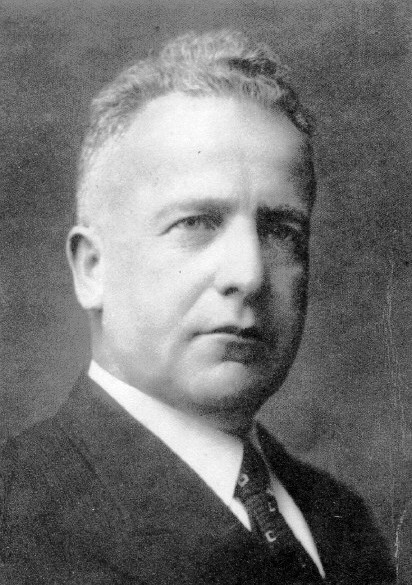
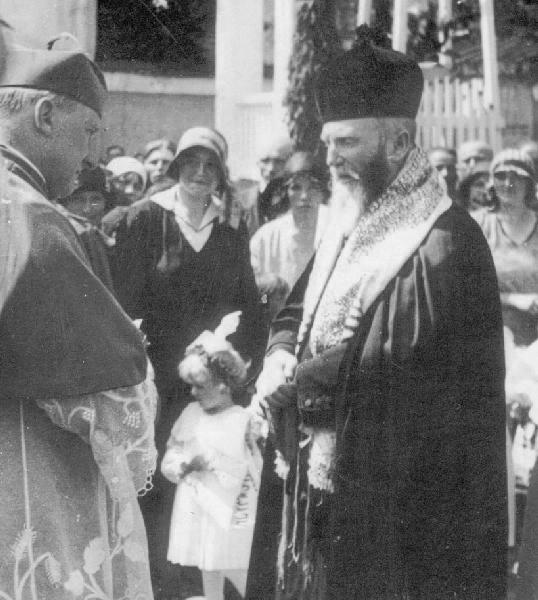
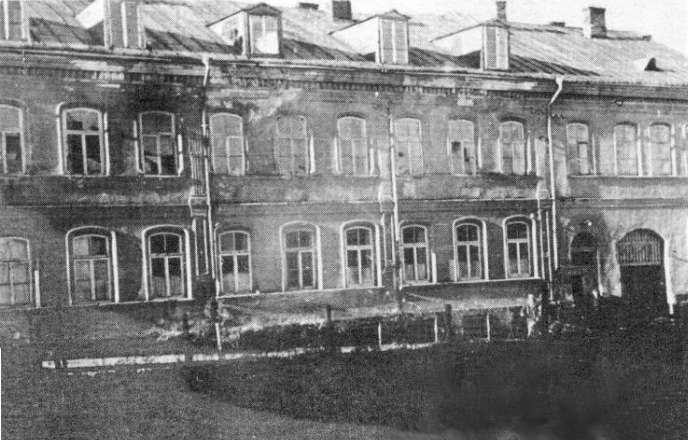
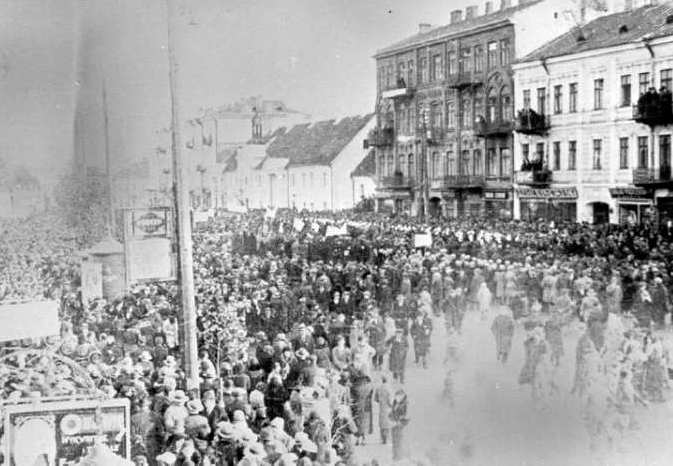
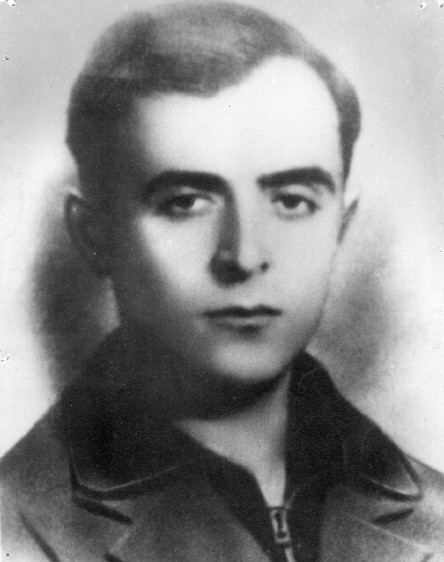
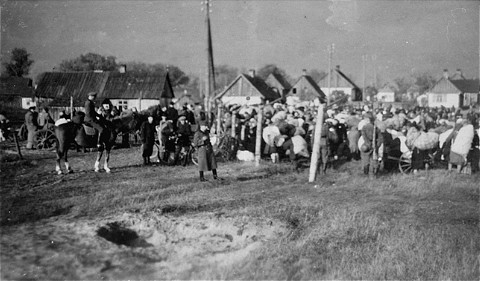
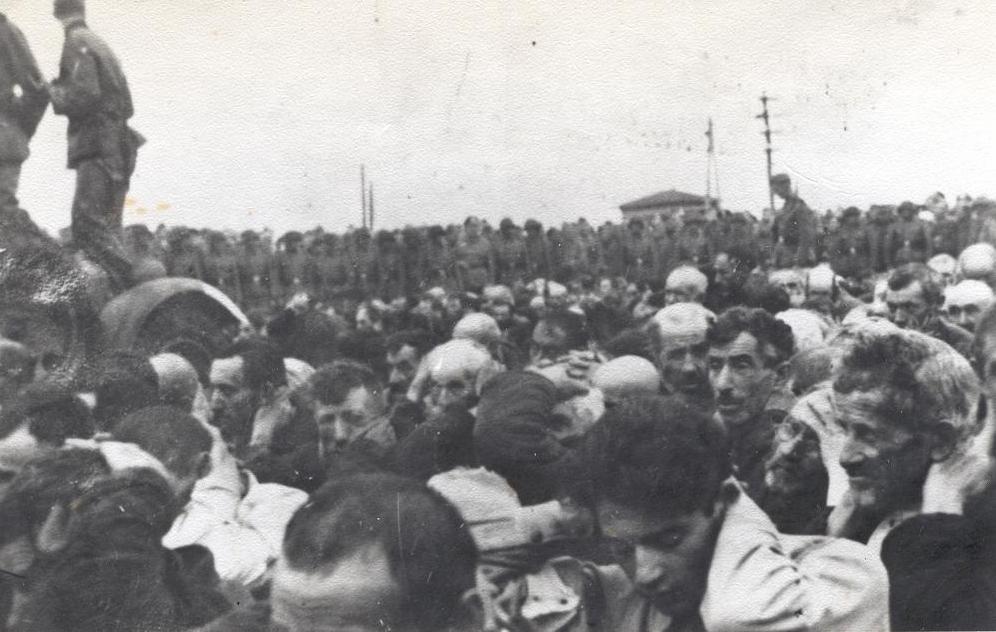
No comments:
Post a Comment